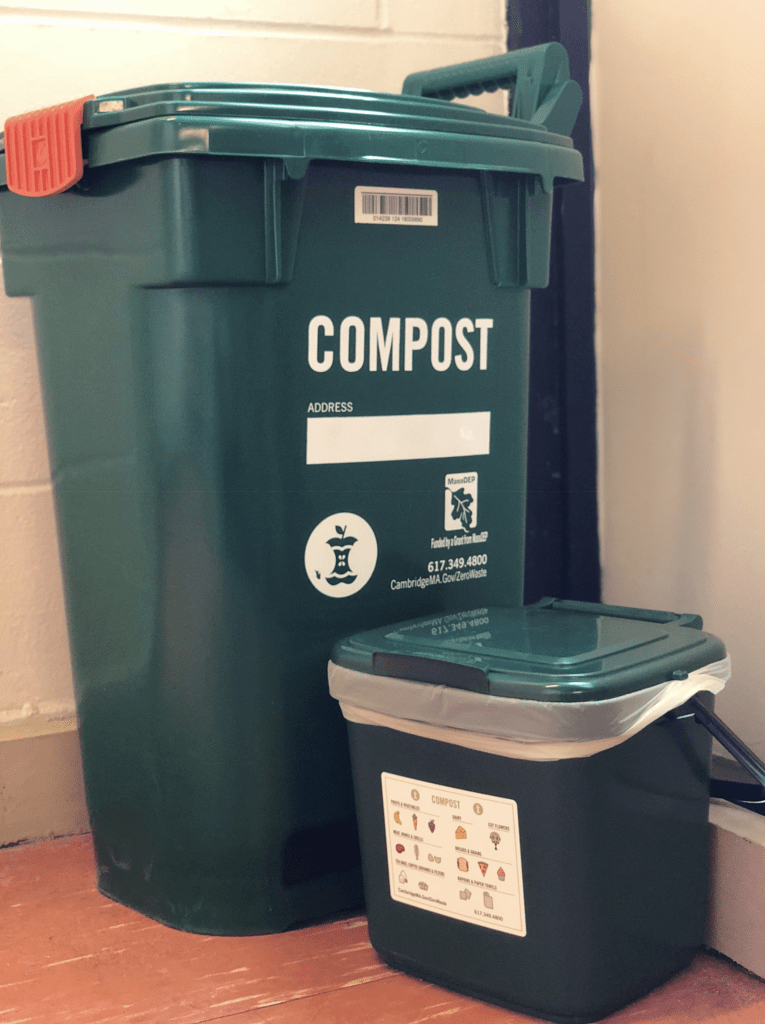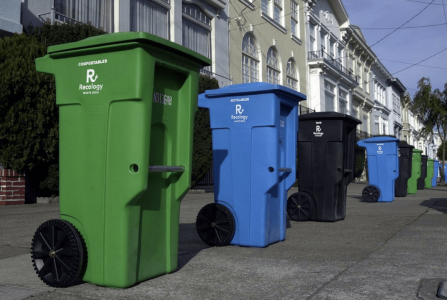By Ellen Mortfield, Executive Director, EcoSuperior
Recycling, composting, and waste reduction in general are frequent topics of discussion at EcoSuperior. Among people visiting our office, there are often complaints about the many items that can’t be recycled in Thunder Bay, and laments about the lack of curbside collection of organic waste. Travellers to southern Ontario get that green bin envy when they see how easy it is to divert compostables from household waste in other communities.
According to the Ontario Ministry of Environment and Climate Change (MOECC), about 37 municipalities in Ontario voluntarily offer curbside collection of compostable waste. While recycling programs are mandated by the province, composting pick-up is not. Due to the costs involved, Thunder Bay has opted not to offer curbside collection for organics. But that may change in the next few years, since the province’s new Waste Management Framework, accepted just last month, includes provisions for an eventual ban of organics from landfills. Ontario has adopted the vision of a circular economy, moving towards zero food and organic waste and zero greenhouse gas emissions from the waste sector. In the near future, the City of Thunder Bay will be obligated by law to offer compost collection.
 In the meantime, local entrepreneurs have seen the opportunity in people’s desire to manage their food waste more effectively. Later this summer, a user-pay curbside compost collection system will be offered, in conjunction with compost pickup from businesses and institutions. The timing is right, with many people discouraged from backyard composting due to the influx of rats brought on by our warmer winters. Many households are also challenged by the two bag garbage limit, and a new option for organic waste collection may be a big help, since food waste often makes up as much as 30% of household trash. The private collector will turn your food waste into saleable garden compost. When municipal collection becomes available, facilities are in place to turn your leftover salad into energy at the landfill site. One way or another, we will be putting out less garbage and diverting more waste, which is a good thing no matter how it happens.
In the meantime, local entrepreneurs have seen the opportunity in people’s desire to manage their food waste more effectively. Later this summer, a user-pay curbside compost collection system will be offered, in conjunction with compost pickup from businesses and institutions. The timing is right, with many people discouraged from backyard composting due to the influx of rats brought on by our warmer winters. Many households are also challenged by the two bag garbage limit, and a new option for organic waste collection may be a big help, since food waste often makes up as much as 30% of household trash. The private collector will turn your food waste into saleable garden compost. When municipal collection becomes available, facilities are in place to turn your leftover salad into energy at the landfill site. One way or another, we will be putting out less garbage and diverting more waste, which is a good thing no matter how it happens.
But while waste diversion options are welcome, waste reduction is something that still ought to be top of mind. The MOECC’s discussion paper states that consumer households waste as much as 47% of the food we purchase or grow. When there are so many people suffering from hunger in our communities, wasting almost half our food supply is criminal. Before we start filling up the green bin of our dreams, we need to take a serious look at why we are throwing away so much food to begin with. Curbside compost collection may be a welcome service, whether fee-based or tax-based, but let’s start by dealing with food waste before it gets to the curb.














